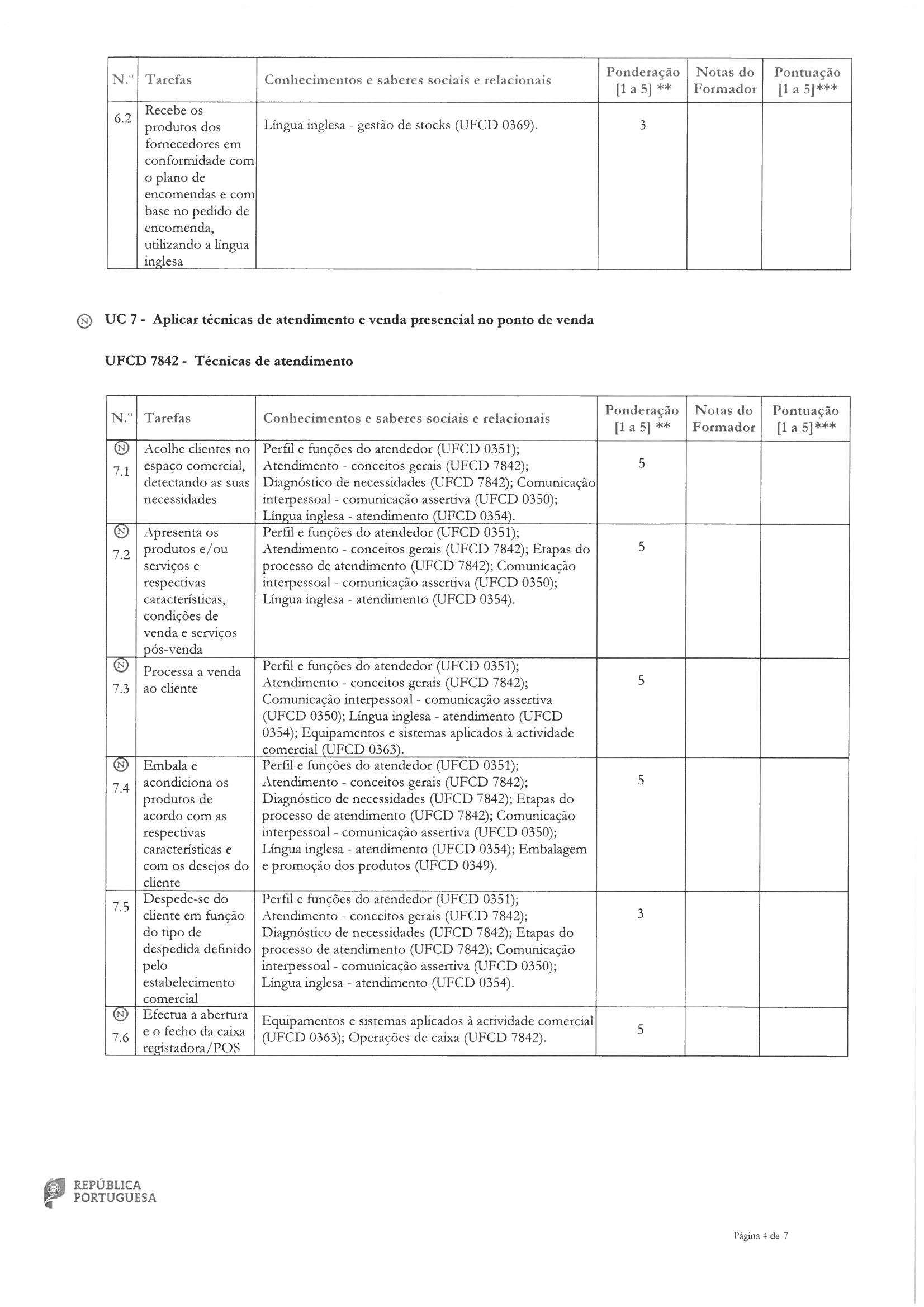Desk research on existing VNFIL good practices and tools
COUNTRY – PORTUGAL
NAME OF THE PRACTICE OR TOOL – TECHNICAL INTERVIEW
1. AIM
Professional certification in non-higher occupations/professions (information on professions available for certification is available at http://www.catalogo.anqep.gov.pt/Qualificacoes – for the moment around 157 professions).
2. OBJECTIVES
• To recognize and validate competences.
• To analyze the domain of a certain number of competences through a set of questions that allows to assess the performance of the tasks foreseen in a Professional Competence Standard as well as the theoretical knowledge and the social and relational skills associated to the tasks.
3. TARGET GROUP
•Adults (aged 18 or plus) who do not hold a professional certification.
•Adults up to 23 years old who do not hold a professional certification (but they must prove to have, at least, three years of professional certified experience to be eligible).
•Exceptionally to NEET.
4. SECTOR
The tool in itself its cross sectorial, and applicable to all the sectors of activity where there is professional certification available (for the moment 34).
The example used is from the commerce sector (see annex).
5. HOW TO USE
The development of the technical interview is based on the application of an interview script, with technical and exploratory questions that should be structured based on the documentary elements and the information already systematized in the portfolio.
This tool is one of the first assessment tools to be used within a certain validation process, but can also be used to clarify doubts that may arise when applying another assessment tool.
The trainer/assessor (which is a someone specialist in the field), in the context of the technical interview, assigns each task under evaluation a score in the scale of 1 to 5, depending on the degree of performance that the candidate is able to demonstrate:
5 – Performs the task very well
4 – Performs the task well
3 – Performs the task satisfactorily
2 – Perform the task unsatisfactorily
1 – Does not perform the task
When assessing each task individually, the trainer/assessor should also evaluate, in an integrated way, the domain of the social and relational skills and of the theoretical knowledge that are associated with each task.
In this way, the trainer/assessor should evaluate the candidate from the point of view of the technical performance of each task, but also from the point of view of the candidate mobilization of the theoretical knowledge and of the social and relational skills associated with each task.
The trainer/assessor must, therefore, confirm whether the candidate performs the task in a conscious, intentional and sustained way or whether it is the mere development of mechanic and/or routine gestures that expresses “tacit knowledge”, so not a competence in itself.
NB: Although the System provides an interview script template for each Professional Competence Standard, it has a flexible character and should be adapted by the trainer/assessor to the characteristics and specificities of each candidate.
6. LINKS WITH OTHER TOOLS
All the tools used for the recognition and validation of competences are somehow linked, once they all explore and use the units of competence and the tasks identified for each unit of competence of a certain Professional Competence Standard.
On top of that, and for instance, the Technical Interview explores elements and information already systematized in another tool – the Portfolio -, so there is a direct link between those 2 tools.
Also, the Technical Interview can be used to clarify doubts that may arise when applying another assessment tool, so the links with other tools used within the Professional RVCC processes such as Portfolio Analysis Document, Job Performance Observation Grid, Practical Exercise Assessment Grid are clear.
7. SOURCE OF INFORMATION (LINK TO A WEBSITE)
NQC – National Catalogue of Qualifications http://www.catalogo.anqep.gov.pt/Oualificacoes.
SIGO is the national integrated information system for the management of E&T offer, a platform used to register all training activity delivered within the NQC and also to manage the RVCC processes, here all tools, including the one described is available https://www.sigo.pt/Login.isp. It is only available for registered providers.











